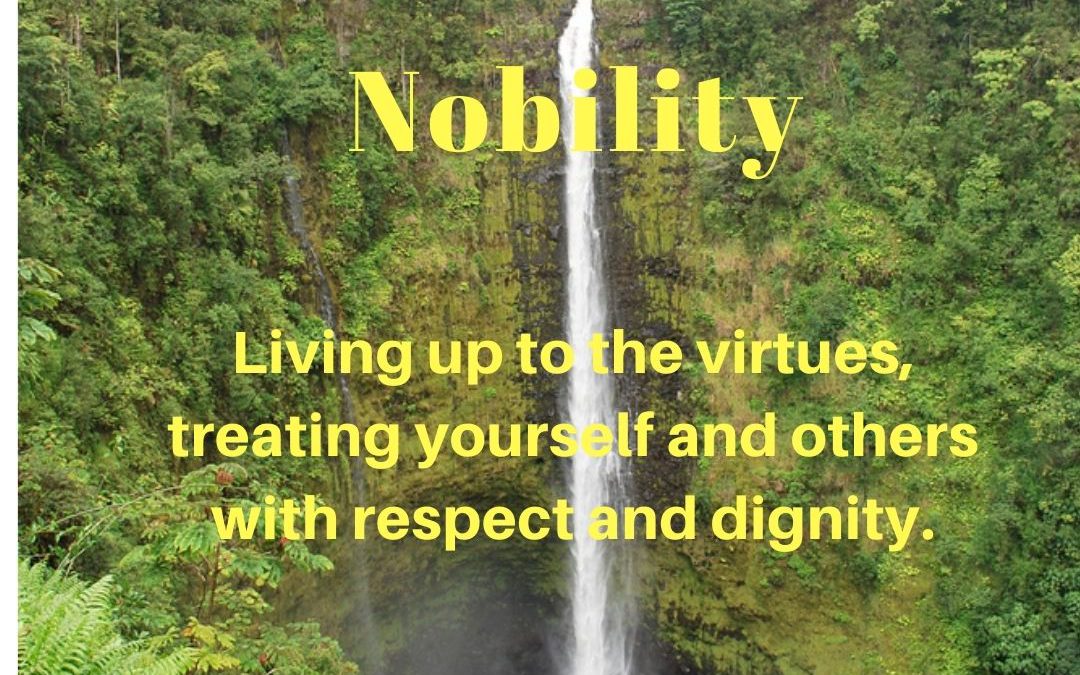
Openness
Description

Openness is a virtue that invites us to live authentically and engage with the world wholeheartedly. It is the practice of being honest and sincere, sharing our thoughts, feelings, and true selves without pretension or fear. Openness fosters genuine connections by prioritizing understanding over control. It asks us to reveal our perspectives candidly while respecting the individuality of others
To be open is to approach life with a receptive heart and an open mind. It means welcoming new ideas and experiences, even when they challenge us, and listening to others with compassionate curiosity. Through openness, we hold space for diverse viewpoints and create an environment where trust and mutual respect can flourish.
This virtue also encourages us to embrace the unexpected, recognizing that life’s surprises can bring growth and joy. By letting go of hidden agendas and preconceived judgments, we become attuned to the beauty of the present moment and the wisdom it offers.
Openness enriches all aspects of life, from personal relationships to professional endeavors. It teaches us that vulnerability is not a weakness but a strength that builds bridges of understanding and kindness. In practicing openness, we unlock the potential for deeper connections and greater harmony with ourselves and the world around us.
Affirmations for Openness
1. I embrace new ideas and perspectives with curiosity and an open heart.
This helps by fostering a mindset of exploration, reducing resistance to unfamiliar concepts.
2. I am honest about my thoughts and feelings, trusting that authenticity builds connection.
By encouraging sincerity, this affirmation promotes deeper relationships rooted in trust.
3. I listen to others without judgment, seeking to understand before being understood.
This practice cultivates empathetic listening, creating space for meaningful dialogue.
4. I release my need for control and welcome the flow of life.
Letting go of control helps reduce anxiety and creates room for unexpected blessings.
5. I allow myself to be vulnerable, knowing it is a strength, not a weakness.
This affirmation builds emotional resilience and strengthens connections with others.
6. I welcome feedback as an opportunity to learn and grow.
Openness to feedback fosters self-improvement and a willingness to adapt.
7. I approach challenges with a flexible mindset, seeing them as opportunities for growth.
This helps shift focus from obstacles to possibilities, encouraging proactive problem-solving.
8. I honor the individuality of others and respect their unique journeys.
Recognizing and respecting differences deepens understanding and fosters harmony.
9. I trust that openness leads to greater connection and understanding.
This builds confidence in being open, reinforcing its value in relationships.
10. I am grateful for life’s surprises and the lessons they bring.
Practicing gratitude for the unexpected encourages a welcoming attitude toward change and discovery.
Quotes
“An open heart is an open mind.” — Dalai Lama
“Be completely humble and gentle; be patient, bearing with one another in love.” — Ephesians 4:2 (The Bible)
“The mind is like a parachute. It doesn’t work unless it is open.” — Frank Zappa
Openness In Family Life
Openness in family life is the practice of creating an atmosphere of trust, honesty, and understanding where every member feels safe to share their thoughts, feelings, and experiences. It is expressed when parents and children communicate authentically, listen with empathy, and approach one another with curiosity and respect.
For parents, openness means being transparent about values and expectations while remaining approachable and willing to learn from their children. It involves admitting mistakes, welcoming feedback, and embracing their child’s individuality without judgment. Parents model openness by creating space for meaningful dialogue and fostering a culture where vulnerability is seen as a strength.
For children, openness involves expressing their feelings honestly and respectfully, asking questions, and being receptive to new ideas. It encourages them to approach challenges with a flexible mindset, be curious about the world, and trust their parents as guides and confidants.
In a family that practices openness, differences are respected, and connections are deepened. Openness nurtures an environment of emotional safety where members can grow together, celebrate each other’s uniqueness, and adapt to life’s surprises with resilience and grace. It is a cornerstone of building strong, harmonious family relationships rooted in mutual trust and love.
Balancing Virtues
Openness, when practiced in balance, is a transformative force in family life. It fosters trust, understanding, and a willingness to connect deeply with one another. When family members feel free to express themselves honestly and listen with empathy, they create an environment of mutual respect and emotional safety. However, openness must be moderated to ensure it remains a positive influence, avoiding extremes such as oversharing or insensitivity. Balancing virtues can help maintain harmony and strengthen relationships.
Balancing Openness
-
-
-
Discernment: Discernment helps families decide when and how to share thoughts and feelings, ensuring openness is appropriate and constructive.
-
Respect: Respect ensures that openness honors the boundaries and comfort levels of all family members.
-
Tact: Tact moderates openness by encouraging thoughtful communication that considers the impact of words on others.
-
Prudence: Prudence guides families in sharing honestly without divulging sensitive or unnecessary information.
-
Compassion: Compassion fosters empathy, ensuring openness is used to connect rather than to criticize or dominate.
-
Self-Control: Self-control helps balance openness by encouraging thoughtful reflection before speaking or acting.
-
Humility: Humility keeps openness from becoming self-centered, encouraging listening and valuing others’ perspectives.
-
Patience: Patience allows openness to unfold gradually, respecting each person’s readiness to share and engage.
-
Courage: Courage balances openness by empowering family members to express themselves honestly, even when it feels vulnerable.
-
Gratitude: Gratitude ensures openness remains grounded in appreciation for the trust and connection it builds within the family.
-
-
Maintaining balance in virtues is essential for cultivating openness as a positive force in family life. When paired with complementary virtues, openness deepens understanding and strengthens bonds while respecting individual boundaries and needs. For both parents and children, this balance fosters a harmonious environment where authenticity and connection thrive.
Joe is a husband, father, grandfather, author, speaker, educator, course creator, and parent/family coach.
He helps parents develop unity, find clarity, communicate, and develop consistency in their parenting with the Four C’s of Successful Families. You can find his work on social media.
In addition, the Four C’s newsletter is enjoyed by many as it encourages parents to self-care, build their relationships with their partners, and raise their children.
And he loves to golf!





